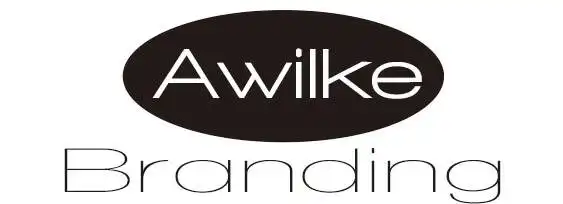Navigating the Complex World of Skincare Manufacturing
The skincare industry is experiencing an unprecedented surge, with consumers becoming increasingly conscious about skincare routines and the products they use. According to a report published on Statista, revenue in the skincare market amounts to $181.2 billion in 2023. The industry is expected to grow at a compound annual growth rate of 3.06% from 2023 to 2028. As entrepreneurs like you step into this thriving market, the importance of choosing the right contract manufacturer can be helpful.
In this article, we will provide you with a detailed guide, including the factors to consider when choosing a contract manufacturer for your skincare brand. But before that, let us briefly discuss difference between private label and contract manufacturing.
Difference Between Private Label and Contract Manufacturing
When diving into the skincare industry, one of the pivotal decisions you’ll face is whether to opt for private label products or engage in contract manufacturing. Each approach has its distinct advantages and considerations, and understanding these differences is crucial for making an informed choice tailored to your brand’s unique needs.
Importantly, it’s worth noting that some manufacturers offer the flexibility to cater to both private label and contract manufacturing needs, providing businesses with versatile solutions.
Private Label Manufacturing:
- Pre-existing Formulations:
Private label manufacturing involves selecting ready-made formulations that are already developed and tested by the manufacturer. These formulations are generic and can be labeled with your brand name and logo. This option offers convenience, allowing you to market products swiftly without the extensive research and development phase.
- Limited Customization:
While private label products provide speed to market, they offer limited customization options. You can typically choose from existing scents, colors, and packaging options, but substantial alterations to the formulation might not be possible. This limitation might affect your ability to create a truly unique product in a competitive market.
- Cost-Effectiveness:
Private label products are generally more cost-effective upfront because the formulations are pre-made and shared among multiple brands. This can be advantageous for entrepreneurs with limited budgets or those testing the market without substantial financial commitments.
- Speed to Market:
Since the formulations are pre-existing, private label products can be launched relatively quickly. This rapid turnaround time is beneficial if you want to seize immediate market opportunities or respond swiftly to trends.
Contract Manufacturing:
- Tailored Formulations:
Contract manufacturing, on the other hand, offers a highly customized approach. It involves working closely with the manufacturer to develop unique formulations tailored to your brand’s specifications. This level of customization allows you to create products that align perfectly with your brand identity and meet specific customer demands.
- Greater Control:
Contract manufacturing provides you with greater control over the ingredients, quality, and overall composition of your products. You can choose organic, cruelty-free, or specialized ingredients, ensuring that your skincare line reflects your brand values. This control is essential for brands emphasizing natural or niche ingredients.
- Brand Differentiation:
With contract manufacturing, you can differentiate your brand significantly. By offering innovative formulations, you can stand out in a saturated market. This uniqueness not only attracts customers but also fosters brand loyalty, as consumers recognize and appreciate the quality and innovation behind your products.
- Long-Term Sustainability:
Contract manufacturing supports long-term brand sustainability. As your brand grows, you can continue to innovate, introducing new products and formulations. The manufacturer’s research and development capabilities become invaluable, helping you stay ahead in an ever-evolving industry.

Understanding Your Skincare Brand Needs
Before delving into the intricacies of selecting a contract manufacturer, it’s imperative to embark on a journey of self-discovery for your skincare brand. Understanding your brand needs goes far beyond simply knowing your products; it involves crafting a holistic vision that resonates with your target audience. Begin by defining your brand identity. Ask yourself the following questions.
- What sets your skincare products apart?
- Is it a commitment to organic, cruelty-free ingredients, or perhaps a focus on cutting-edge anti-aging technology?
Understanding your unique selling propositions (USPs) forms the bedrock of your brand’s identity, allowing you to communicate a compelling story to your customers.
Moreover, consider your brand’s values and mission. Are you passionate about sustainability, empowering confidence, or promoting wellness? Integrating these values into your skincare line not only creates a genuine connection with your audience but also guides your choice of ingredients, formulations, and manufacturing processes. By diving deep into these aspects, you not only define your brand but also pave the way for a successful partnership with a contract manufacturer that shares your vision and passion.
Conducting Market Research
In the ever-evolving landscape of the skincare industry, thorough market research stands as the cornerstone of a brand’s success. Identify emerging ingredients and formulations that resonate with health-conscious consumers, staying abreast of the clean beauty movement, sustainable practices, and innovative technologies. Tools like Google Trends can help you understand which skincare ingredients are more in demand.
Understanding customer preferences is equally pivotal. Engage with your potential clientele through surveys, social media polls, and focus groups to grasp their skincare rituals, pain points, and product expectations. By deciphering their desires, you can craft products that not only meet but exceed their expectations, fostering brand loyalty and positive word-of-mouth.
Analyzing competitors’ offerings provides invaluable insights into market saturation and gaps. Identify areas where competitors excel and areas they overlook, pinpointing opportunities for your brand to shine. Recognizing these gaps empowers you to conceptualize unique products that cater to unmet needs, setting your brand apart in a competitive market. Moreover, studying competitors’ strategies helps you refine your marketing approach, ensuring you communicate your brand’s strengths effectively.

Factors to Consider When Choosing a Contract Manufacturer
-
Product Integrity and Expertise:
Quality is non-negotiable in the skincare industry. Assess the manufacturer’s quality control processes, certifications, and ingredient sourcing to ensure they meet industry standards and align with your brand’s values. Ensure they meet stringent quality standards, allowing you to deliver high-quality skincare products to your customers.
-
Production and Research and Development Capability:
It’s crucial to determine the manufacturer’s production volume and their ability to innovate by developing new products. Assessing their capability in both areas ensures they can meet your quantity requirements while staying ahead with innovative offerings.
-
Comparing Manufacturer Prices:
Similar to how you assess prices before making any purchase, it’s essential to compare the pricing structures of different manufacturers. Conduct thorough research to identify a manufacturer that provides excellent value for your investment, ensuring you get the best quality products within your budget.
-
Verifying Manufacturer Credentials:
Certificates such as ISO22716, GMP, FDA, GMPC, Sedex, and BSCI serve as indicators of a manufacturer’s credibility and the superior quality of their offerings. These certifications instill confidence in their reputation and assure you of the products’ high standards.
5. Communication and Transparency:
Effective communication is key to a successful partnership. Evaluate the manufacturer’s responsiveness, transparency, and willingness to provide updates on the production process. Evaluate how promptly the manufacturer responds to your inquiries, concerns, and requests. A responsive manufacturer demonstrates attentiveness and is more likely to address your needs promptly, fostering a productive working relationship.
How to Analyze Potential Skincare Contract Manufacturers
Evaluating potential skincare contract manufacturers requires a meticulous approach to ensure your brand’s reputation and product quality remain uncompromised.

- Thorough Research
Informed decisions form the foundation of a successful partnership. Start with comprehensive market research to gauge reasonable service prices. Seek recommendations from industry peers and friends. Prioritize specific standards like cruelty-free, vegan, and gluten-free products. Reputable companies often showcase these qualities on their websites, making it easier to identify potential partners.
- Define Your Priorities
Clarify your brand’s non-negotiables, such as accessibility, attention to detail, problem-solving capabilities, quick turnaround times, and communication channels. Your chosen manufacturer should align with these priorities, possessing the expertise and resources to meet your brand’s unique demands.
- Approach Potential Manufacturers
Armed with knowledge and clear priorities, engage in meetings with prospective manufacturers. Pose essential questions regarding their materials, pricing structures, fees, bulk benefits, quality standards, and minimum order quantities (MOQ). Prepare a detailed brief outlining your expectations to minimize misunderstandings.
- Emphasize Good Manufacturing Practice (GMP)
Prioritize manufacturers practicing Good Manufacturing Practice (GMP) standards, ensuring adherence to quality and safety regulations. Familiarize yourself with GMP basics to make informed decisions about your chosen partner. Assess their facilities meticulously, favoring those operating in UL-audited, FDA and EPA-registered establishments, mirroring the stringent GMP standards upheld by skincare contract manufacturers.
- Sample Testing
Request product samples from your top candidates. The quality of the sample serves as a litmus test; even if a manufacturer tick’s other boxes, sub-standard samples indicate a lack of suitability. Pay attention to every detail, ensuring your chosen manufacturer delivers products that meet your brand’s excellence standards.
Cost Analysis and Budgeting
Cost analysis and budgeting are pivotal steps in choosing a skincare contract manufacturer. While budget constraints are natural concerns for entrepreneurs, it’s crucial not to compromise on quality and innovation solely for the sake of a lower price tag. Instead, focus on achieving a balance that ensures your products meet the desired standards while staying within your financial limits.
When assessing costs, consider the entire production process. This includes raw materials, formulation expertise, manufacturing equipment, quality control measures, and packaging. Request detailed quotes from potential manufacturers, breaking down the costs for each component. Analyze these quotes meticulously, ensuring there are no hidden expenses that might inflate your budget unexpectedly.
Moreover, negotiate pricing based on the value offered. Evaluate the manufacturer’s quality assurance protocols, production capabilities, and innovation potential. A slightly higher cost might be justified if the manufacturer offers superior quality, advanced technology, or unique formulations that can elevate your brand above the competition. Assess the long-term benefits of investing in a high-quality partnership, including customer satisfaction, brand reputation, and potential for product expansion.

Choosing Your Skincare Manufacturing Ally
As you stand at the crossroads of selecting the perfect skincare contract manufacturer for your brand, it’s essential to synthesize the wealth of information gathered during your evaluations. A critical aspect in this decision-making process is understanding that experienced manufacturers possess a wealth of knowledge about the market. They are not only aware of the industry trends but also have insights into what products are most popular among consumers.
- For instance, manufacturers in regions like China are well-versed in the production of popular skincare items, often offering competitive prices due to their extensive experience and streamlined production processes. This knowledge can be invaluable, providing you with helpful advice and potential directions for your product line.
Here are some of the tips to help you choose the right skincare contract manufacturer for your beauty brand.
- Evaluating Track Records:
Delve deep into the manufacturer’s history by exploring their past partnerships. Look for brands that share similar values and market positioning. A thorough analysis of their previous collaborations provides insights into their expertise and reliability, helping you make an informed decision.
- Reviewing Product Portfolios:
Carefully examine the manufacturer’s product portfolios to assess the quality and innovation demonstrated in their previous work. Look for uniqueness and creativity in their formulations. By understanding the depth of their expertise, you can gauge their ability to meet your specific requirements and deliver outstanding skincare products.
- Considering Client Testimonials:
Take the time to read client testimonials and assess the level of satisfaction among their partners. A manufacturer with positive feedback and a strong industry reputation indicates a history of reliable service. Learning from the experiences of others can provide valuable insights into the manufacturer’s commitment to client satisfaction and product quality.
- Ensuring Regulatory Compliance:
Verify the manufacturer’s adherence to essential quality certifications, such as Good Manufacturing Practices (GMP), and their compliance with local and international regulations. Scrutinize their quality control processes to ensure they meet the stringent requirements of the skincare industry. Regulatory compliance is fundamental to the safety and legality of your products.
- Measuring Reliability and Expertise:
Analyze the manufacturer’s successful collaborations to understand their reliability and expertise. Look for indicators of long-standing partnerships and satisfied clients. A manufacturer with a proven track record of consistent, high-quality products and a deep understanding of skincare formulations demonstrates the reliability and expertise essential for a successful partnership.
Ultimately, the right contract manufacturer for your skincare brand is the one that aligns seamlessly with your ethos and long-term goals. Choose a partner who not only meets your immediate production needs but also understands your brand vision, contributing to your growth and success in the competitive skincare market.
Conclusion
Selecting the right contract manufacturer for your skincare brand is a pivotal decision that can shape your brand’s success. By understanding your brand needs, conducting comprehensive research, and evaluating manufacturers based on essential criteria, you can make an informed choice. Remember, the partnership you forge will impact not only the quality of your products but also your brand’s reputation in the market.
In this context, Awilke Branding emerges as the ultimate choice for skincare startups. With a wealth of knowledge spanning product formulation, marketing strategies, innovative packaging solutions, and more, Awilke Branding offers unparalleled expertise crucial for a thriving skincare business. Awilke Branding not only provides the necessary manufacturing capabilities but also becomes a strategic ally, ensuring your products not only meet but exceed the expectations of your customers.

 5 Steps to Build Your Skin Care Brand from Scratch
5 Steps to Build Your Skin Care Brand from Scratch

